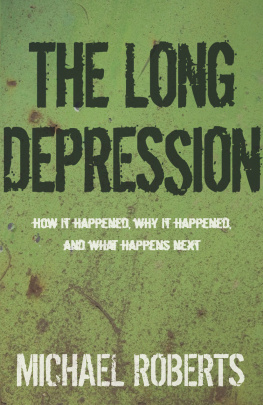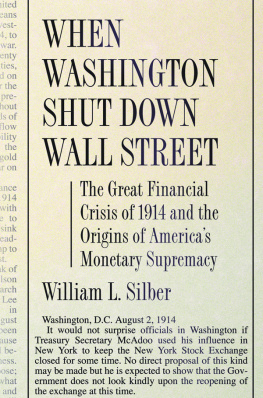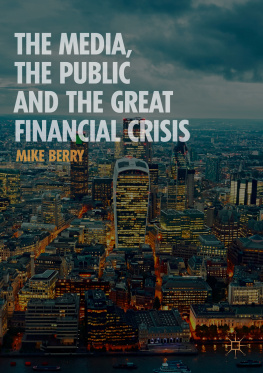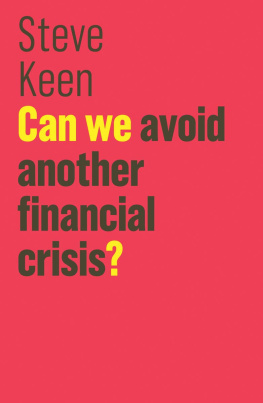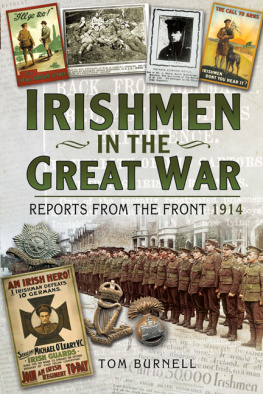Roberts - Saving the city: the great financial crisis of 1914
Here you can read online Roberts - Saving the city: the great financial crisis of 1914 full text of the book (entire story) in english for free. Download pdf and epub, get meaning, cover and reviews about this ebook. City: Great Britain;Oxford, year: 2013, publisher: Oxford University Press, genre: Science. Description of the work, (preface) as well as reviews are available. Best literature library LitArk.com created for fans of good reading and offers a wide selection of genres:
Romance novel
Science fiction
Adventure
Detective
Science
History
Home and family
Prose
Art
Politics
Computer
Non-fiction
Religion
Business
Children
Humor
Choose a favorite category and find really read worthwhile books. Enjoy immersion in the world of imagination, feel the emotions of the characters or learn something new for yourself, make an fascinating discovery.

Saving the city: the great financial crisis of 1914: summary, description and annotation
We offer to read an annotation, description, summary or preface (depends on what the author of the book "Saving the city: the great financial crisis of 1914" wrote himself). If you haven't found the necessary information about the book — write in the comments, we will try to find it.
Saving the city: the great financial crisis of 1914 — read online for free the complete book (whole text) full work
Below is the text of the book, divided by pages. System saving the place of the last page read, allows you to conveniently read the book "Saving the city: the great financial crisis of 1914" online for free, without having to search again every time where you left off. Put a bookmark, and you can go to the page where you finished reading at any time.
Font size:
Interval:
Bookmark:
SAVING THE CITY
Praise for Saving the City
A timely reminder that if we dont want to repeat the mistakes of the past then we first need to understand them.
George Osborne, Chancellor of the Exchequer
A fascinating insight into a half-forgotten crisis. Written with a verve and clarity that any reader can savour.
Sebastian Faulks, author Birdsong and A Week in December
A masterly account of the financial crisis that brought the first great age of globalization to a close. Richard Robertss narrative is finely wrought and wholly absorbing.
John Plender, Columnist, Financial Times
Richard Roberts is an authority on the history of the City of London. He has brought his great expertise to the hitherto largely unexplored financial crisis of 1914. A masterly study brought to life with extensive quotation from contemporaries.
Forrest Capie, Professor Emeritus of Economic
History, Cass Business School
This is a superbly researched, calmly authoritative, and finely told account of a momentous episode in modern financial history. Richard Roberts has a formidable grasp of the technical intricacies but is also fully alive to the human dimension, as politicians, mandarins, bankers, and others jostle in not always seemly pursuit of self-preservation as well as the greater good. The drama of 1914 may until now have been the unknown financial crisis; that is assuredly the case no longer.
David Kynaston, author The City of London, 18152000
THE GREAT FINANCIAL CRISIS OF 1914
RICHARD ROBERTS


Great Clarendon Street, Oxford, OX2 6DP,
United Kingdom
Oxford University Press is a department of the University of Oxford.
It furthers the Universitys objective of excellence in research, scholarship,
and education by publishing worldwide. Oxford is a registered trade mark of
Oxford University Press in the UK and in certain other countries
Richard Roberts 2013
The moral rights of the author have been asserted
First Edition published in 2013
Impression: 1
All rights reserved. No part of this publication may be reproduced, stored in a retrieval system, or transmitted, in any form or by any means, without the prior permission in writing of Oxford University Press, or as expressly permitted by law, by licence or under terms agreed with the appropriate reprographics rights organization. Enquiries concerning reproduction outside the scope of the above should be sent to the Rights Department, Oxford University Press, at the address above
You must not circulate this work in any other form and you must impose this same condition on any acquirer
Published in the United States of America by Oxford University Press
198 Madison Avenue, New York, NY 10016, United States of America
British Library Cataloguing in Publication Data Data available
Library of Congress Control Number: 2013938932
ISBN 9780199646548
As printed and bound by CPI Group (UK) Ltd, Croydon, CR0 4YY
Links to third party websites are provided by Oxford in good faith and for information only. Oxford disclaims any responsibility for the materials contained in any third party website referenced in this work.
For
Sarah, Lilian, and Nancy
When the realisation that the financial crisis which started in earnest in August 2007, and continued through October 2008, was of major proportions, many looked for historical parallels. For most, it was the Great Depression of the 1930s. But this comparison is misleading in two important respects. First, the policy responses were very different, and for a while that deflected attention away from an analysis of the similarities and differences of the causes of the two crises. Second, there was, unlike the United States, no banking crisis in Britain in the 1930s, and the immediate nature and required response to the recent crisis was very different to the issues raised in the 1930s.
A more interesting parallel is with the international financial crisis that accompanied the outbreak of the First World War in 1914. There is much we can learn from the events of 1914. As Richard Roberts writes, the financial crisis of 1914 was the most severe systemic crisis London has ever experienced. And at that time, London was the dominant international financial centre, even more important than New York in 2008.
My own interest in the crisis of 1914 stemmed from a meeting of the Financial History Dining Club (which I had founded with Charles Aldington, then Chairman of Deutsche Bank UK, shortly before I became Governor in 2003) in October 2006. That evening, devoted to a discussion of the events of 1914, was one I recalled frequently over the following five years.
In order to bring home the seriousness of the crisis in 2007-2008, without raising the spectre of a downturn in output and employment as large as in the 1930s, I referred in my own speeches to the fact that the banking crisis we were experiencing was the most severe that the UK had suffered since the events of 1914. Yet I found that few people knew much about the financial crisis of 1914. Richard Roberts has performed a great service in explaining those events, at home and abroad, in a lucid and masterly fashionone that is particularly important as we mark the centenary of the Great War. For there is a risk that the many otherwise excellent new books on the origins, nature, and consequences of that conflict will do inadequate justice to the significance and impact of the financial events of the summer of 1914.
The origins of the financial crisis of 1914 were certainly very different from those of other episodes, including the recent crisis. But the unfolding of the crisis and its management by the authorities drew obvious comparisons.
Immediately prior to the crisis, complacency was evident in the failure of both policy-makers and markets to take seriously the likely consequences for the economic outlook of a war in Europe. Even after the assassination of Archduke Franz Ferdinand in Sarajevo on 28 June 1914, there was barely a ripple in London markets.
It was almost a month before financial markets woke up to the significance of those political events, and it was the ultimatum from Austria to Serbia on 23 July which finally changed sentiment. European stock markets fell sharply, and several were closed. There was a flight to safety, and especially to cash, and market liquidity dried up in all major markets, including those for foreign exchange, the discount market, and stock markets. Three-month money market rates more than doubled. As accurate pricing became impossible, the London Stock Exchange was closed on the morning of Friday 31 July, followed later in the day by the New York Stock Exchange.
Britain declared war on 4 August. During that first week of August, a series of unprecedented crisis measures were introduced by the Treasury and the Bank of England. The UK government decided to intervene and risk taxpayers money on an unprecedented scale in a mission to save the City.
And this is where the comparison with our recent financial crisis comes to the fore. There are four main parallels with the management of the financial crisis in 1914.
The first and most important of these was the realisation early on in 1914 that the problem facing British financial institutionsdiscount houses, accepting houses, and bankswas not a problem solely of liquidity, but, at heart, one of solvency. The provision of liquidity by the Bank of England did not resolve the position of the accepting houses (the forerunner of investment banks) and the banks. It became increasingly clear that in wartime conditions many debtors on the Continent would be unable to repay, and that as a result many of the assets held by British financial institutions (in particular, bills of exchange) would fall in value, leaving those institutions insolvent.
Next pageFont size:
Interval:
Bookmark:
Similar books «Saving the city: the great financial crisis of 1914»
Look at similar books to Saving the city: the great financial crisis of 1914. We have selected literature similar in name and meaning in the hope of providing readers with more options to find new, interesting, not yet read works.
Discussion, reviews of the book Saving the city: the great financial crisis of 1914 and just readers' own opinions. Leave your comments, write what you think about the work, its meaning or the main characters. Specify what exactly you liked and what you didn't like, and why you think so.








